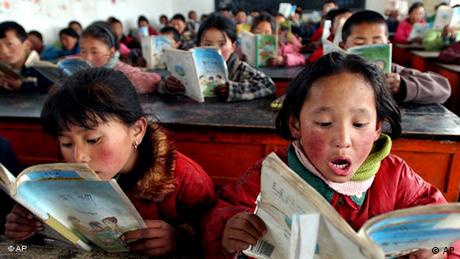Washington, 23 Aug, 2023 (GNP): The United States has taken a significant step by imposing new visa restrictions on Chinese officials suspected of involvement in the alleged “forced assimilation” of over 1 million children in state-run boarding schools in Tibet. The move highlights concern about coercive policies aimed at erasing Tibet’s distinct linguistic, cultural, and religious traditions among its younger generations.
US Secretary of State Antony Blinken refrained from naming specific individuals but urged Beijing to put an end to these “coercive” policies in the culturally distinct far western region. “These coercive policies seek to eliminate Tibet’s distinct linguistic, cultural, and religious traditions among younger generations of Tibetans,” Blinken stated in a press release.
Also Read: China announced leadership changes in People’s Liberation Army Rocket Force
The United Nations had previously expressed concerns about the residential school system, which appeared to be a “mandatory large-scale program intended to assimilate Tibetans into majority Han culture.” It revealed that around 1 million children had been separated from their families and subjected to a “compulsory education” curriculum in Mandarin Chinese. The absence of substantive study of the Tibetan language, history, and culture further raised alarm.
Reacting to this development, the Chinese embassy in Washington, dismissed the allegations as “smears” and accused the move of undermining China-US relations. Liu Pengyu, the embassy’s spokesperson, stated that the boarding schools were established to cater to the needs of the local population and to address challenges faced by ethnic minority students.
Also Read: Biden administration announces new rules restricting US investments in China
In light of these concerns, the United States appointed Uzra Zeya as Tibet coordinator last December, with a focus on facilitating dialogue between China and the Dalai Lama, as well as advocating for the human rights and fundamental freedoms of the Tibetan people.
The move comes amid ongoing efforts to mend the strained relations between Washington and Beijing, addressing issues ranging from trade to the COVID-19 pandemic’s origins, the situation of the Uighurs, and the situation in Taiwan.

